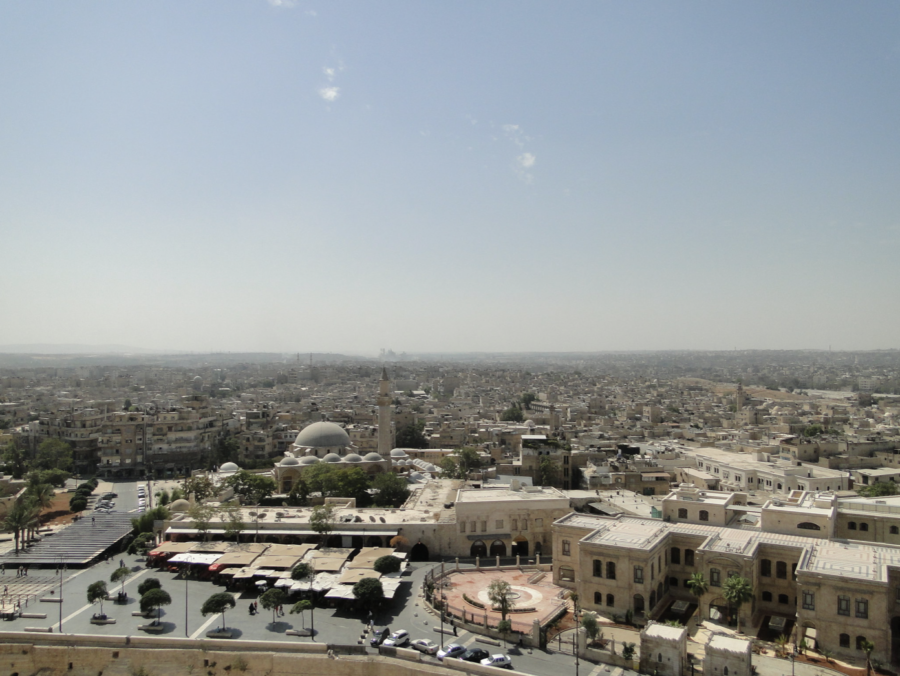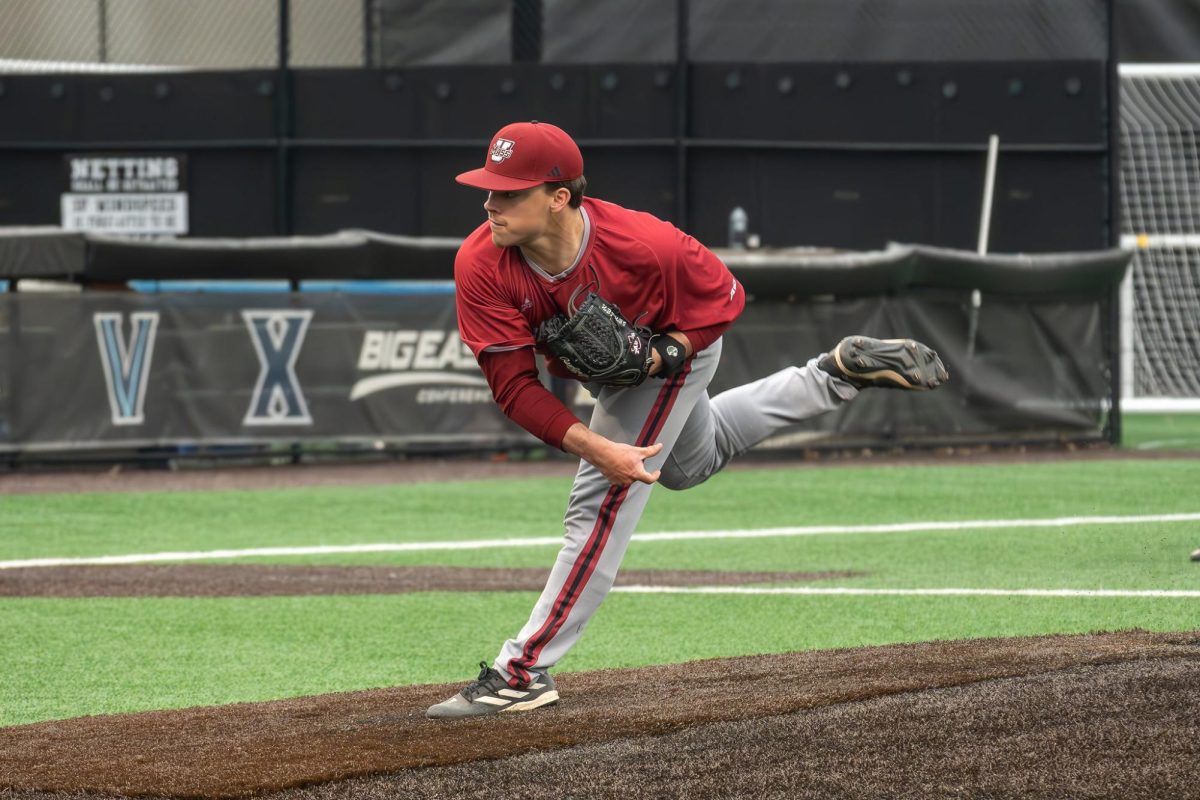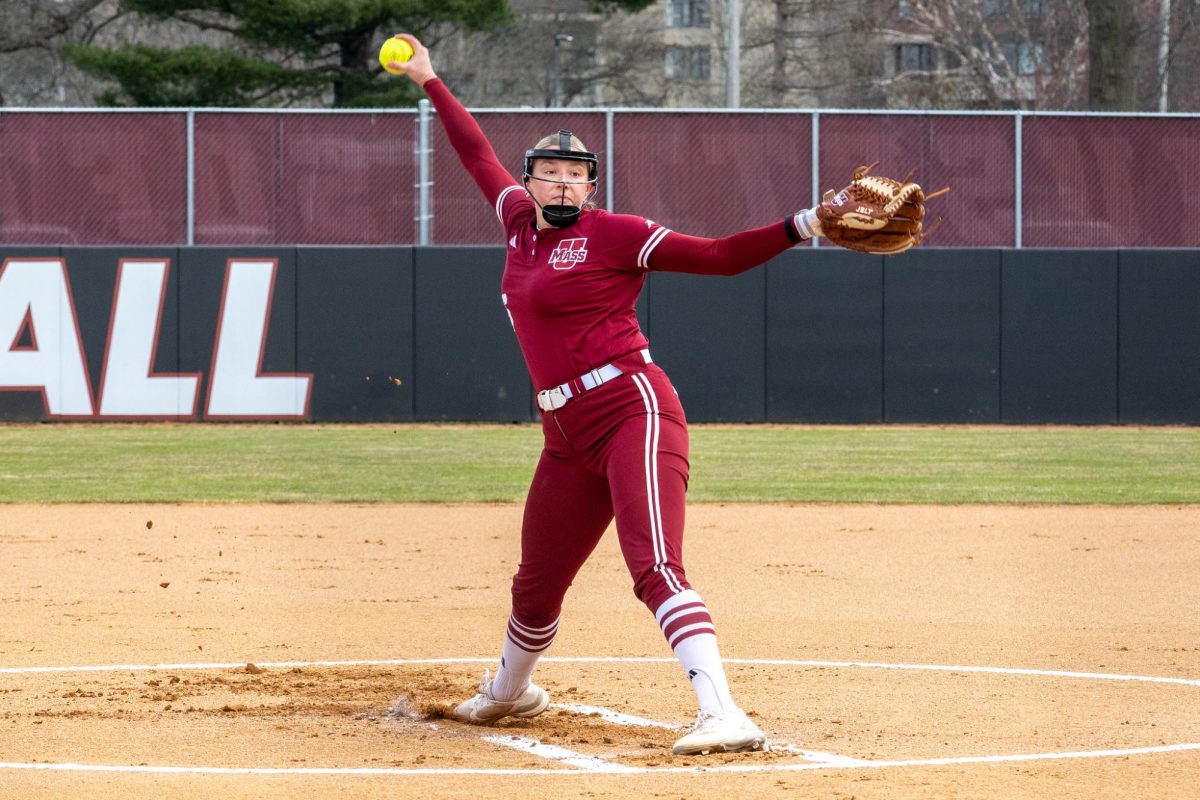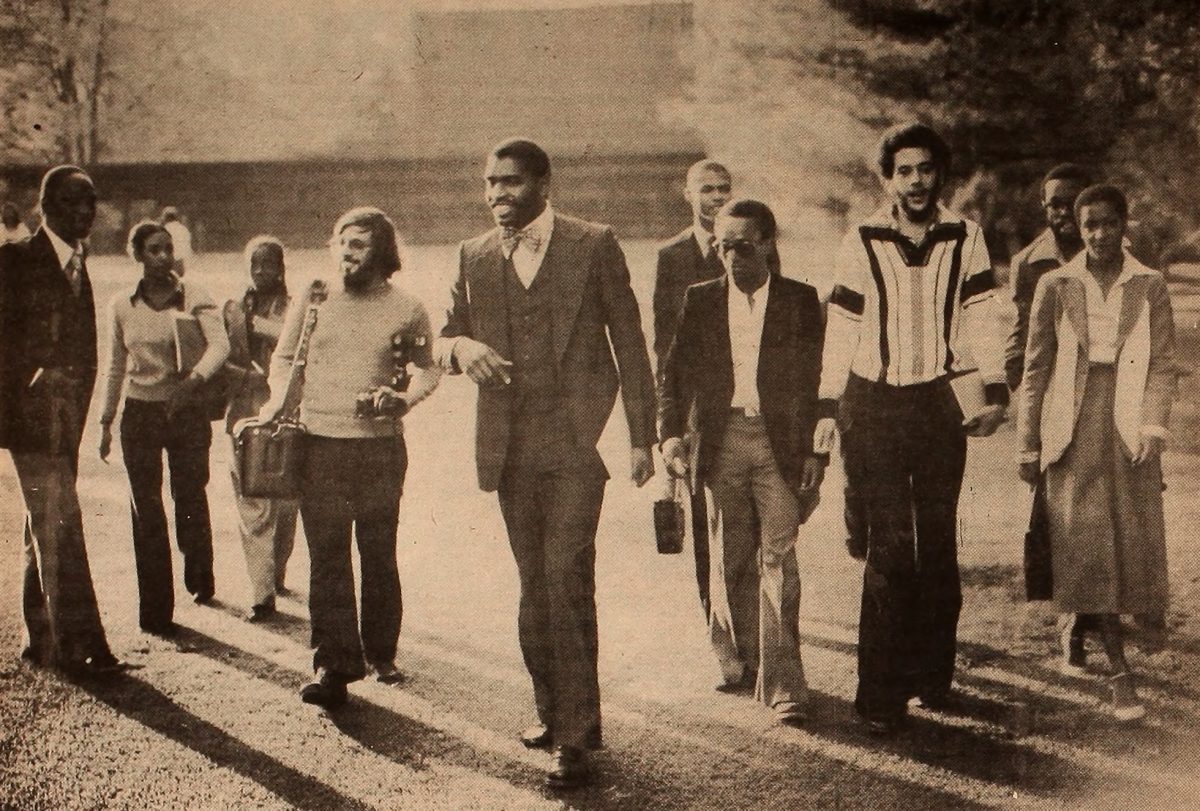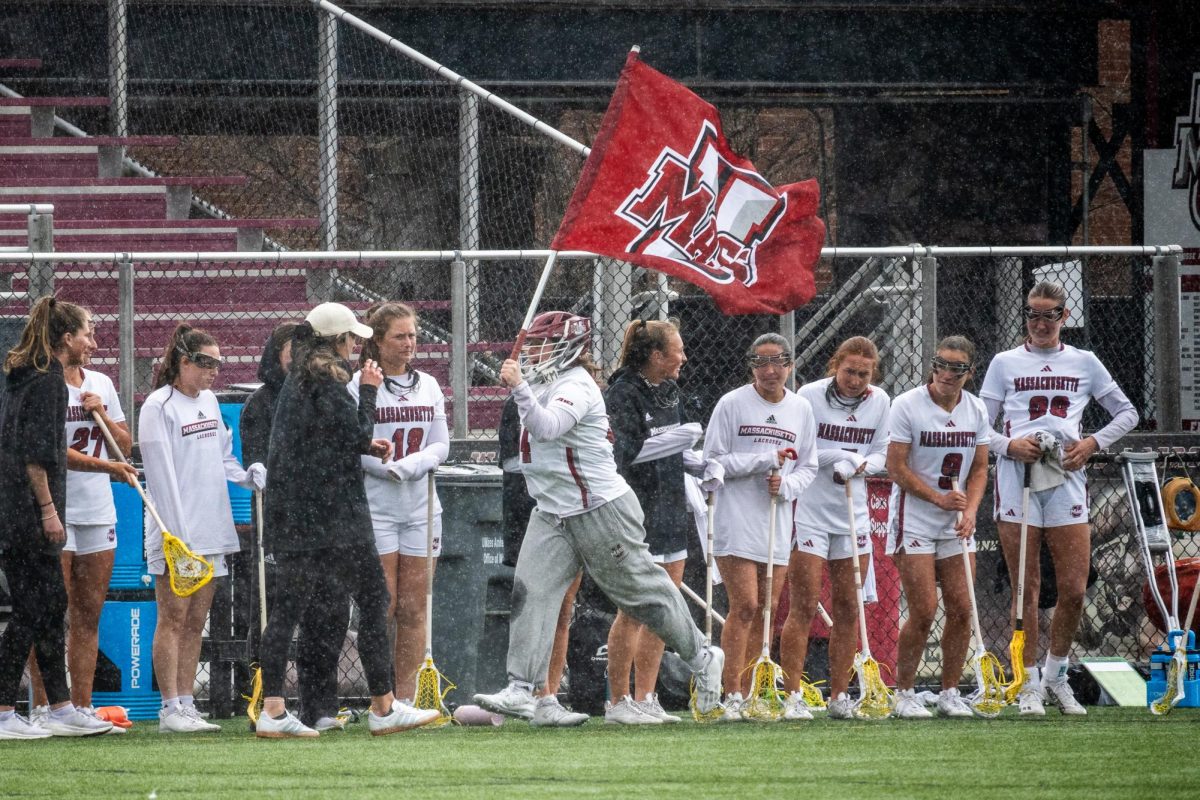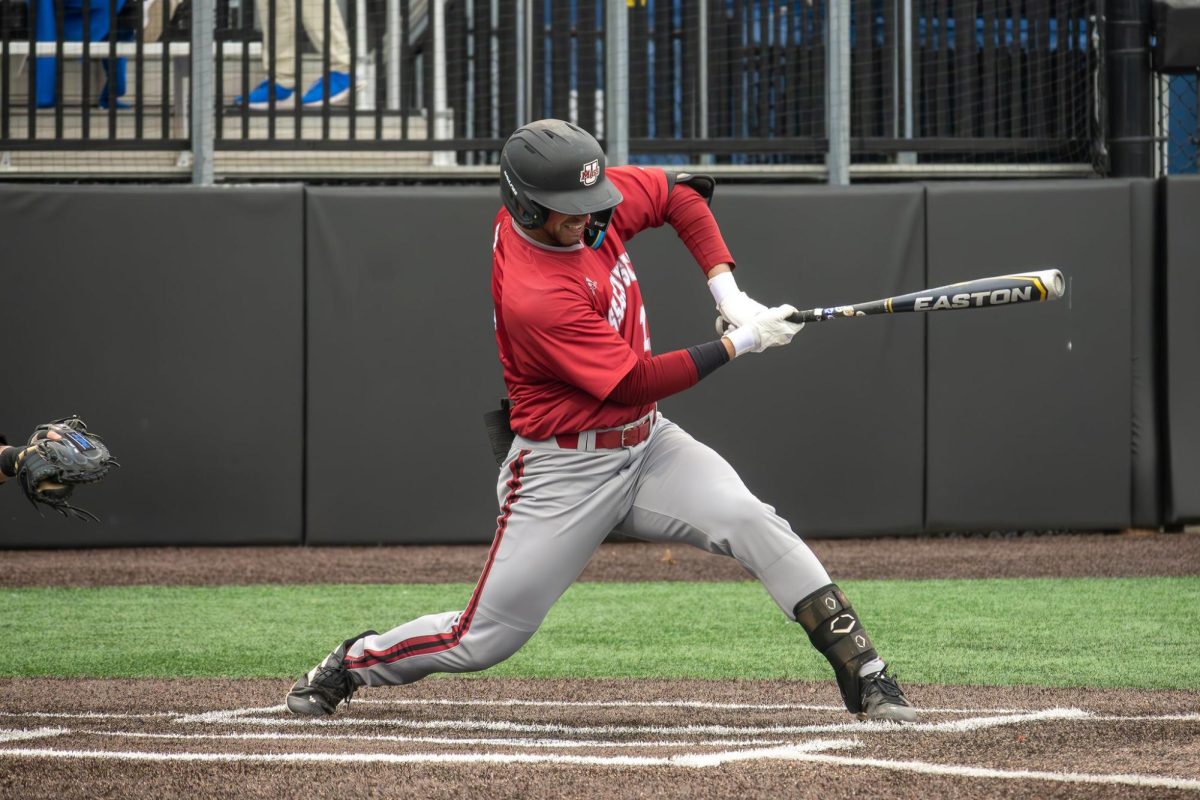When the Syrian uprising began in March of 2011, protestors had no idea what outcome it would yield. Now, 10 years into what has become a bloody war, uncertainty about the country’s future remains.
The pro-democracy protests began in the southwestern city of Daraa, inspired by the Arab Spring. Musaab Balchi, a Syrian-Palestinian journalist at the time of the initial protests, began his engagement in the uprising as soon as he could.
“It was an incredible opportunity,” Balchi explained. “During that moment, I said things that I would never be able to speak and I felt empowered.”
Though the initial protests were peaceful, demonstrators were met with strong government resistance. By March 25 of that year, it was estimated that 38 people had already been killed by security forces.
Today, the exact death toll of the decade-long conflict is unknown, but the Syrian Observatory for Human Rights estimates it to be over 593,000 as of December 2020.
Those who survived the war continue to struggle as well. According to the United Nations Refugee Agency, the Syrian war has displaced 6.7 million people internally, and 6.6 million more people are refugees outside of the country.
Basileus Zeno is one of the millions who lost their homes over the course of the conflict. A Ph.D. candidate in political science at the University of Massachusetts, he is routinely asked to update his permanent address on the school’s student portal.
“The place they forced me to write down doesn’t exist anymore,” Zeno said.
Up until the point that he left Syria, Balchi remained engaged with the uprising. He had just completed his journalism studies at the University of Damascus when he left the country in August of 2013. However, once he arrived in the United States, Balchi noted that the conflict shifted from “peaceful to extreme violence . . . [which] is not what we were aspiring for.”
“The best thing we could do at this point was [to] stop . . . contributing to it,” he said.
Zeno, who grew up in the southwestern Syrian city of As-Suwayda, attended the University of Damascus for his master’s in classical and Islamic archaeology and remained there as a Ph.D. candidate. At the time of the protests, he was a political activist, writing for Arab newspapers in support of the Arab Spring.
However, he was forced to flee Damascus in 2012 due to the escalating conflict. “By the time I left, it started to become more like a war,” Zeno said.
While his activism did not stop once he left Syria, it became “fundamentally different from . . . when I was directly affected by the consequences of my own ideas and activities,” he said.
“Say . . . I’m criticizing the Syrian regime, for instance,” Zeno said. “There is a likelihood that I will disappear in [Syria] and be killed under torture. But here, I can . . . have a conversation with you. These would be my last words if I [was] saying that in Syria. This same interview would be my last interview.”
Zeno continues to engage in activism virtually as the co-editor of two webpages: Salon Syria and the Syrian section of Jadaliyya. Through Salon Syria, writers still within the country are commissioned to report on its internal happenings.
“That’s part of my belief in activism,” he explained. “Don’t take the space [from] other people more in a position [and] eligible to write.”
The long-ongoing Syrian war has “disrupted the entire society,” David Mednicoff, department chair & associate professor of Middle Eastern studies and public policy, said. “Now there’s sort of a generation of people student-aged and younger, . . . who really know nothing, besides civil war and disruption and economic challenges.”
“The Syria we knew ceased to exist,” Zeno said.
The country continues to struggle today in various ways. Poverty levels in the country are at their worst since the start of the conflict, with the United Nations estimating that 80 percent of Syrians live in poverty. Nearly 60 percent of the population is food insecure. The COVID-19 pandemic ravaged the country, furthering the economic strain.
“I think Syria is going to remain in very, very difficult circumstances for a very long period of time,” Steven Heydemann, director of program in Middle East studies at Smith College, said. “Because of the Assad regime’s conduct during the war, we would have a reconstruction task that would be generational in scope under the best of circumstances.”
President Bashar Asaad plans to run for his fourth term this spring. Heydemann said he thinks the future of Syria is “grim,” as his regime “sits securely in power thanks to Iranian and Russian intervention in the conflict.”
Refugees reflecting on the future do not harbor much hope either. “I think any displaced person in the world is fantasizing about the idea of the point before the departure,” Zeno said. He vividly remembers the details from the night before he left, including the last photo he took with his mother.
United States policies have restricted Zeno and his wife, a fellow Syrian Ph.D. candidate at UMass, from seeing their families in nearly a decade. Both his mother and mother-in-law were unsuccessful in obtaining visas to visit the U.S.
When considering the possibility of returning home, Zeno remarked that “there is no guarantee that Syria is [a] livable place anymore.”
For Balchi, who now works as a media analyst at Exovera, returning home was never an option – even when he lived in Syria. As the son of a Palestinian refugee, he explained that he “should not be in Syria to be witnessing the war in the first place.”
“[My parents] are in Syria because of [a] previous war that happened,” he said.
Balchi did not have Syrian nationality by the time the war began. “I have stateless status and travel documents from the Syrian government that only . . . added so much struggle to my refugee experience in the United States because it made every step more difficult, much more complex, my options have been limited, and so on,” he explained.
***
Despite the future of Syria, its citizens and its refugees remaining uncertain, Mednicoff highlighted opportunities for people outside of the country to help. While “ordinary people, whether it’s students, professors . . . can’t necessarily strongly influence a diplomatic outcome,” they can bring about smaller-scale change to the humanitarian crisis.
“Whether it’s those people who can donate a little bit of money or those people who can . . . go into working with humanitarian relief organizations, or just public speaking out and saying, you know, ‘we don’t want a world in which millions of people don’t have a stable home, don’t have a possibility of an income, don’t have an education,’” he said.
Zeno also offered advice for those looking to further their knowledge of the Syrian war.
“I would encourage journalists, scholars [and] students to go beyond what they are hearing,” he said. “Do the research [yourself] and complicate the story because there isn’t one story to be told.”
Sara Abdelouahed can be reached at [email protected]. Follow her on Twitter @AbdelouahedSara.

